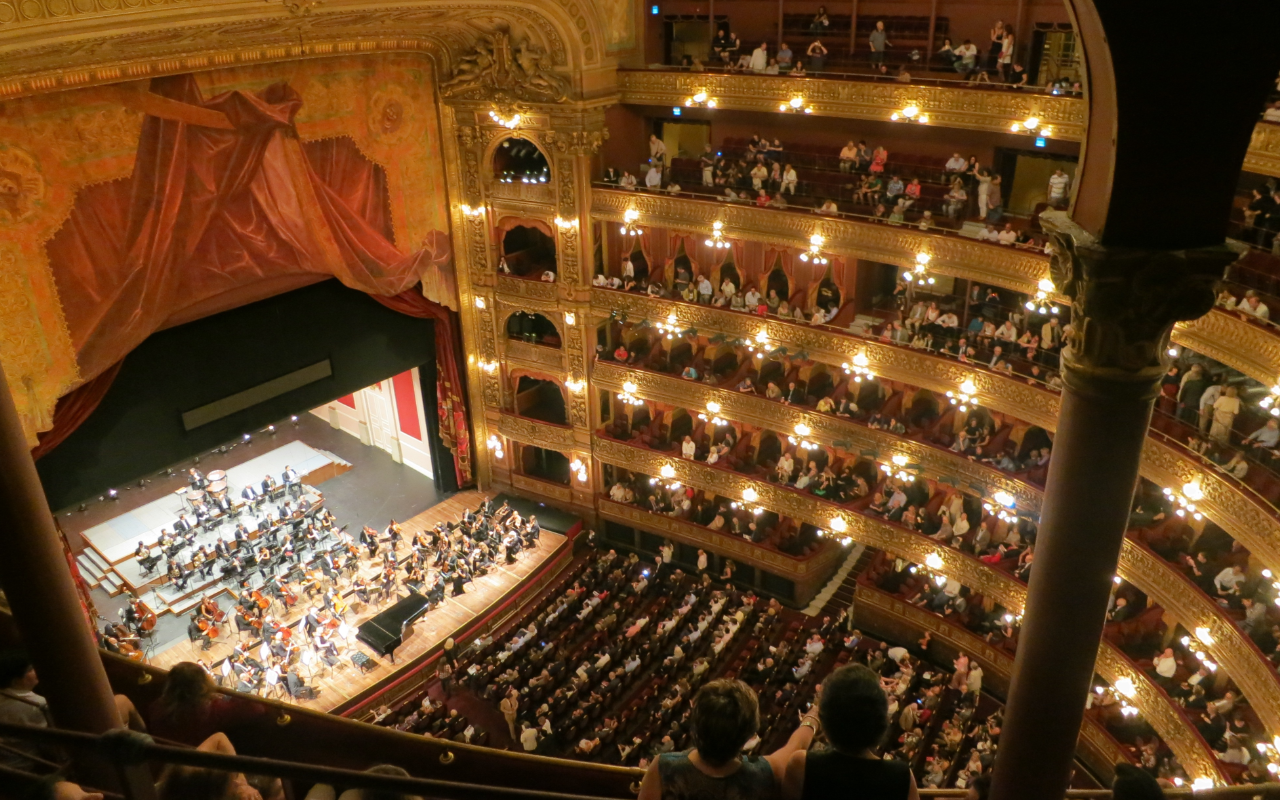
Audiences call for focus on climate emergency
The Act Green survey finds the majority of cultural audiences are concerned about the climate crisis and are prepared to take part in initiatives to combat it.
More than three quarters (77%) of cultural audiences think cultural organisations have a responsibility to make change and address the climate emergency, according to new research.
Over 11,600 audience members from across 58 cultural organisations nationwide took part in the Act Green survey, conducted by Indigo and pointOne.
Results found 86% of cultural audiences are worried about the impact of climate change, 10% more than the general population when compared with results of a recent Office for National Statistics (ONS) survey. Most respondents also expressed a desire to see cultural organisations make their productions, building and operations more sustainable.
READ MORE:
- Renewable energy project to put festivals on national grid
- Scotland to tie arts funding to net zero progress
Indigo CEO Katy Raines said it is “really encouraging” to see the level of importance cultural audiences place on the climate emergency.
“The results clearly show that audiences expect the cultural organisations they attend and support to lead the way when it comes to sustainability, managing buildings more efficiently, making changes to front of house operations and challenging people to think differently by tackling climate themes on their stages.”
Ensuring buildings are as energy efficient as possible, reducing and recycling waste, and avoiding disposable packaging and single-use plastic were seen as the most important sustainability efforts, agreed on by over 90% of respondents.
Consensus suggests audiences would like to see cultural organisations do more to protect the climate. Only 17% agreed cultural organisations currently place great importance on playing an active role in tackling climate change, although a further 57% said they place some importance on it.
pointsONE CEO Steven Rolfe believes the results show audiences want these organisations to lead the way with practical changes, operationally as well as on stage.
“Thankfully, it would seem that the pandemic years have not dulled the momentum for climate activism nor lessened its appeal to audiences.”
Supporting sustainability initiatives
Act Green asked audiences how likely they were to get involved in audience-focused initiatives, with 72% saying they would be open to cultural organisations making more sustainable food choices.
Almost two thirds (65%) said they would be open to using public transport to access a reduced ticket price, although the idea was more popular with audiences living in urban areas than rural areas, who in turn were more likely to support a car sharing scheme. Younger respondents were more likely to get involved in all the proposed sustainability initiatives.
When asking audiences which fundraising initiatives they were most likely to support, improving biodiversity of a venue proved most popular (52%), followed by redevelopment works to improve the energy efficiency of a venue (47%).
Under 35s were more likely to support fundraising initiatives than over 35s. Raines said the responses from younger audiences offer a real opportunity for cultural organisations to build relationships with a new generation who are passionate about climate activism.
“I hope this signals the beginning of a new wave of supporters, advocates and volunteers to support organisations to meet sustainability goals.”
'Be confident and communicate'
Cultural organisations should “be confident and bold, communicate, and make new connections” when dealing with the climate emergency, according to the report’s recommendations.
Indigo’s advice tells organisations to be “more effective with what you tell audiences”, after the survey found a quarter of audiences don’t know how much importance organisations currently place on sustainability efforts.
The recommendations also say cultural organisations should look to engage with their younger audiences, volunteers and donors through its approach to climate change.
90% of respondents that donate or are members of the cultural organisations involved in the survey said they were somewhat or very worried about climate change and were more likely to pledge support to the proposed fundraising initiatives than non-members.
The report also features resources available to cultural organisations to support their sustainability efforts, including the Theatre Green Book and Julie’s Bicycle Creative Green Tools.
“We hope this will prompt organisations to reflect on their own operations and utilise the excellent resources available to support their own journey towards a sustainable future,” Rolfe added.
Join the Discussion
You must be logged in to post a comment.